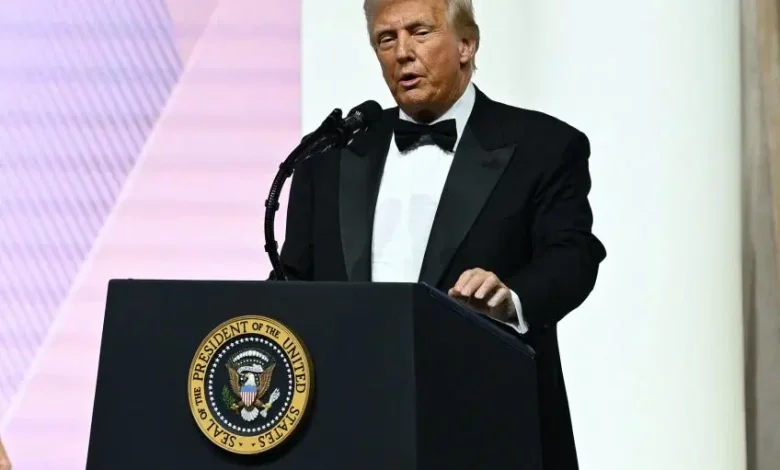Trump Announces US Withdrawal from Paris Climate Accord for Second Time, Declares “National Energy Emergency”

On Monday, President Donald Trump made a bold and controversial move, announcing the United States’ withdrawal from the Paris climate accord for the second time, marking a significant departure from global efforts to combat climate change. The announcement came during a rally with supporters in Washington, where Trump also declared a “national energy emergency” aimed at expanding drilling operations across the country.
“We’re immediately withdrawing from the unfair, one-sided Paris Climate Accord rip-off,” Trump said, as he took aim at the accord’s perceived inequities. He added that the U.S. would not “sabotage our own industries while China pollutes with impunity,” emphasizing his commitment to reviving the U.S. oil and gas sector.
Trump also signed several executive orders to reverse key climate policies introduced by the previous administration. These measures include scrapping vehicle emissions standards, halting offshore wind farms, and rejecting international climate finance commitments made by the U.S. under former President Obama’s leadership. He further instructed federal agencies to begin rejecting international climate finance pledges.
As part of the formal withdrawal process, Trump sent a letter to the United Nations notifying the body of the United States’ intent to exit the Paris Agreement, with the country set to leave in one year.
The Paris Accord, which was adopted in 2015 by 195 countries, aims to curb greenhouse gas emissions and limit global warming. Trump’s decision has drawn heavy criticism, with many arguing it undermines global cooperation on climate change and emboldens major polluters like China and India.
Criticism of the Move
Environmental groups and critics have slammed the withdrawal as a setback for international climate efforts. Rachel Cleetus of the Union of Concerned Scientists called it a “travesty,” saying the move reflected an administration that is “cruelly indifferent” to the severe climate change impacts felt both in the U.S. and globally.
The withdrawal comes at a time when global temperatures have surpassed a critical 1.5 degrees Celsius warming threshold, intensifying calls for immediate action to mitigate climate-related disasters.
Despite Trump’s actions, the Paris Agreement remains resilient, with many experts believing it will endure. Laurence Tubiana, a key architect of the accord, remarked that while the U.S. withdrawal was “unfortunate,” multilateral climate action has proven stronger than any one country’s political decisions. UN climate chief Simon Stiell added that the door remains open for the U.S. to rejoin the accord in the future.
Energy and Environmental Policy Shifts
In addition to the Paris exit, Trump signed a series of sweeping executive orders aimed at reversing President Joe Biden’s climate initiatives. These included actions to lift bans on offshore drilling, approve permits for liquefied natural gas (LNG) facilities, and resume drilling on protected lands in Alaska. Trump also expressed his disdain for “big, ugly windmills,” a frequent target of his criticism.
Energy industry leaders, including Mike Sommers of the American Petroleum Institute, voiced strong support for Trump’s moves, emphasizing the need for what they described as “common sense energy solutions.”
However, environmental advocates like Manish Bapna, president of the Natural Resources Defense Council, condemned the actions, arguing there was no “energy emergency” and that the real emergency is the climate crisis itself. Bapna also criticized the Trump administration for exacerbating climate issues while benefiting oil and gas industry donors.
Looking Ahead
While Trump’s policies are expected to slow the pace of greenhouse gas emissions reductions, experts remain hopeful that the U.S. can continue to make progress in cutting emissions over the long term, especially as states and cities may continue to pursue their own climate goals.
The announcement comes amid ongoing climate disasters, including devastating wildfires in Los Angeles, highlighting the ongoing urgency of addressing the climate crisis. Despite the U.S. withdrawal from the Paris Accord, global efforts to combat climate change will likely persist, with many nations continuing to push for stronger environmental policies and action.





